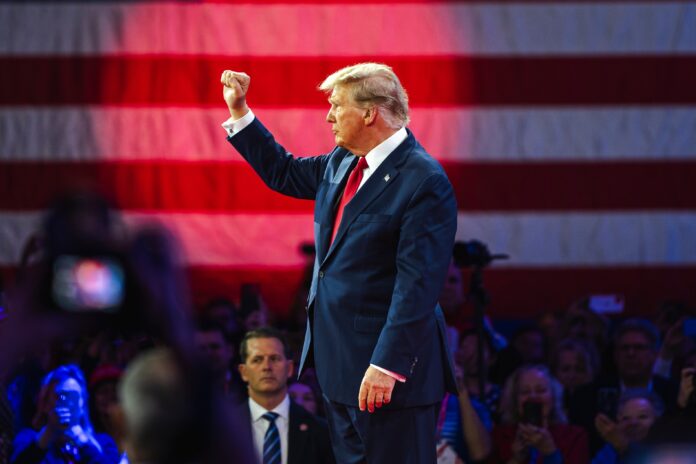A U.S. federal trade court has struck down most of President Donald Trump’s sweeping “Liberation Day” tariffs, dealing a significant legal and political blow to one of his signature economic policies.
In a unanimous decision, the Court of International Trade ruled that Trump exceeded his authority by imposing broad import duties on nearly all U.S. trading partners. The tribunal said the U.S. Constitution clearly assigns the power to regulate foreign commerce to Congress, and that this authority cannot be overridden by emergency presidential powers.
The decision stems from two consolidated lawsuits — one filed by the Liberty Justice Center on behalf of small import-reliant businesses, and another led by a coalition of U.S. state governments. These law suits challenged the legality of tariffs imposed under the 1977 International Emergency Economic Powers Act (IEEPA), which Trump used to justify his sweeping trade restrictions.
The court also invalidated a separate set of tariffs on China, Mexico, and Canada that Trump claimed were necessary to stop the flow of drugs and illegal immigrants. However, duties on specific goods such as automobiles, steel, and aluminum — imposed under different legal grounds — were not part of the ruling.
The Trump administration quickly announced plans to appeal, underscoring the broader implications of the decision for presidential trade powers.
While critics called the tariffs economically damaging and legally dubious, Trump and his allies have framed them as vital tools to protect U.S. industry and jobs. The court’s decision now puts that rationale—and future attempts at unilateral trade action—under intense legal scrutiny that could haunt Trump’s second term as president.
Global financial markets, meantime, welcomed the court rejection of Trump’s “Liberation Day” tariffs, with the US dollar gaining, US stock futures stronger, while European markets were higher. Japan’s Nikkie 225 was up nearly 2 percent.







